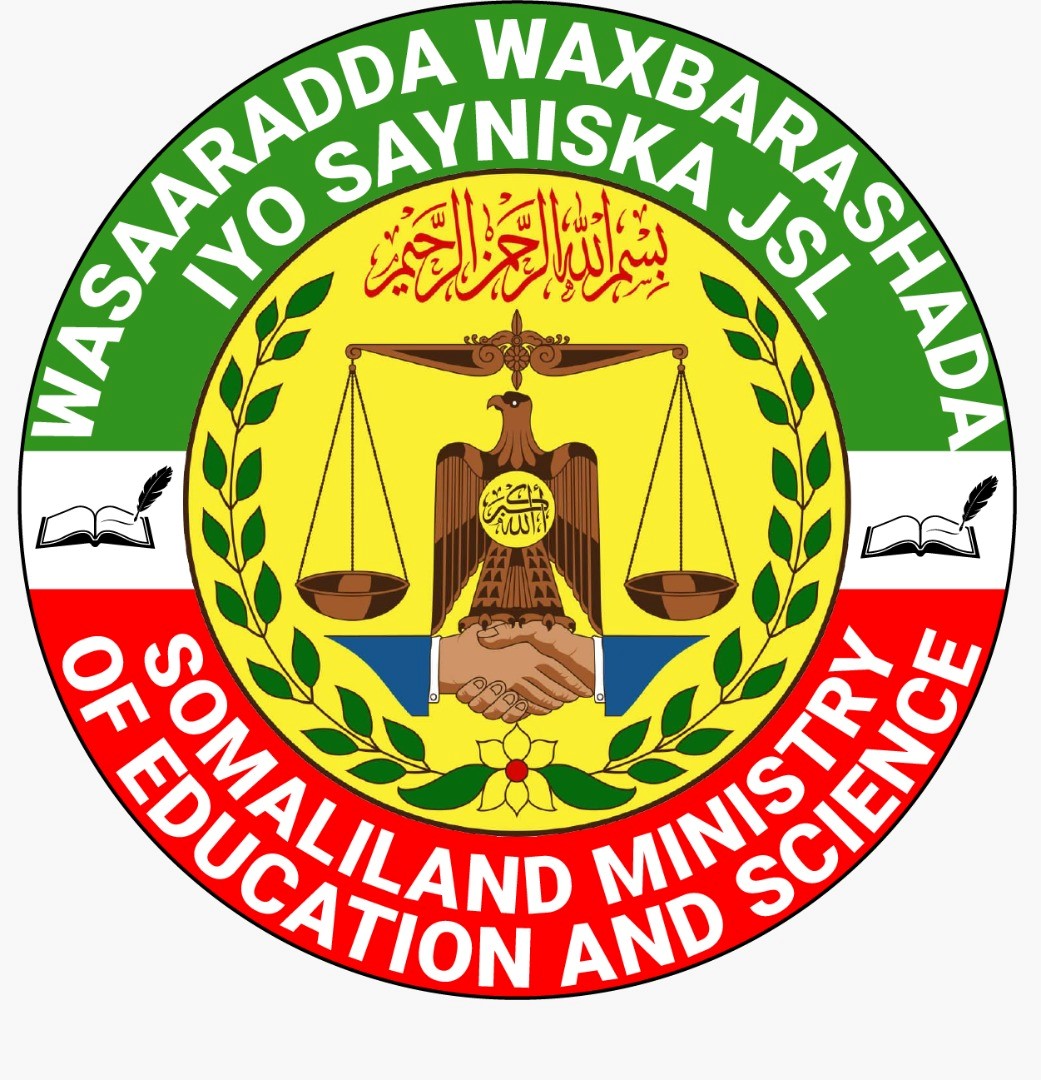Policies and Standards
Teachers' Code of Conduct and Professional Ethics.
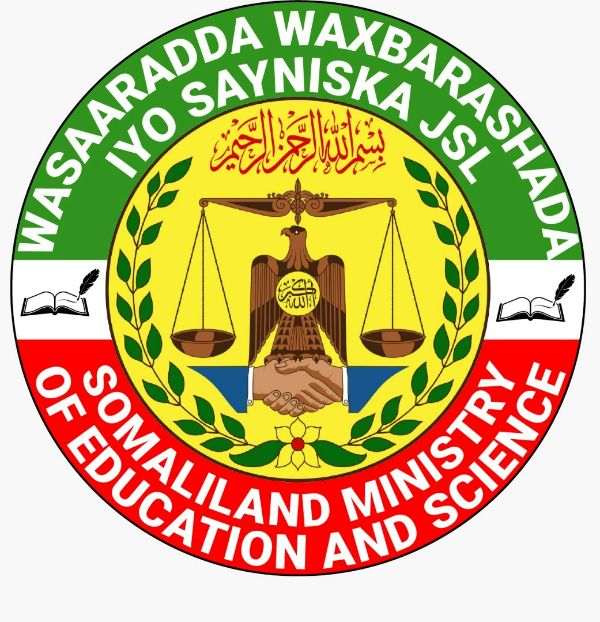
A code of conduct in this context is defined as the behaviour, attitudes, and character exhibited, for example, by anyone within and outside the working environment. The standards of conduct generally required of any member of the Somaliland Ministry of Education would be leadership, integrity, impartiality, fairness, and honesty in matters affected by work and the status of the teaching profession.
The code is classified into minor and serious/major misconducts. Also, penalties prescribed for various acts of misconduct are classified into minor or major penalties.
The misconducts reported by the target groups interviewed (children, teachers, H/teachers, parents/CEC, REOs/DEOs/Supervisors, elders and religious leaders, and Moe high-ranking officials) are divided into two categories:
- Serious misconduct
- Minor misconduct
Further details are available in an attachment below.
National Education polocy
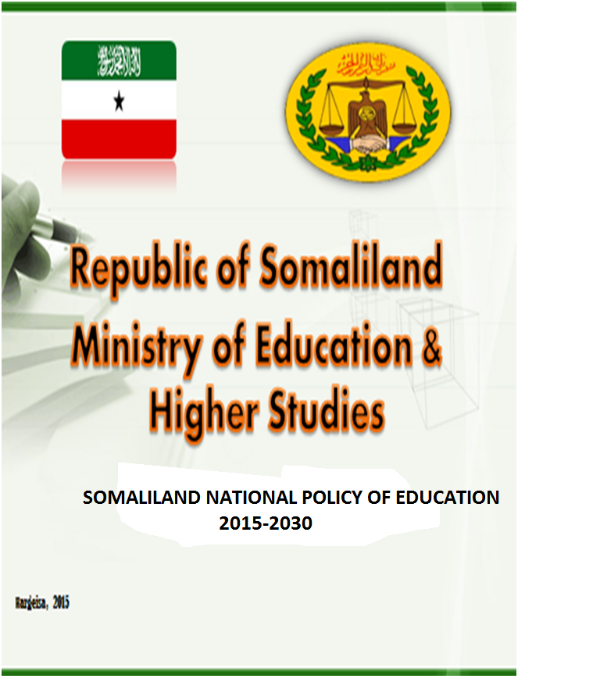
Seeing the fact that education is change-driven and change-oriented as time goes by, the transformation has furnished the necessary improvement to the system, which is guided by national priorities and visions. In essence, the education policy is in essence planned to be a coherent and well-calibrated national policy.
Primary school enrolment has enormously multiplied while the enrolment of secondary schools has significantly increased.
with all activities existing inside and outside of education, the MOES developed policies to coordinate overall education activities.
Early Childhood Education Policy and Institutional Framework
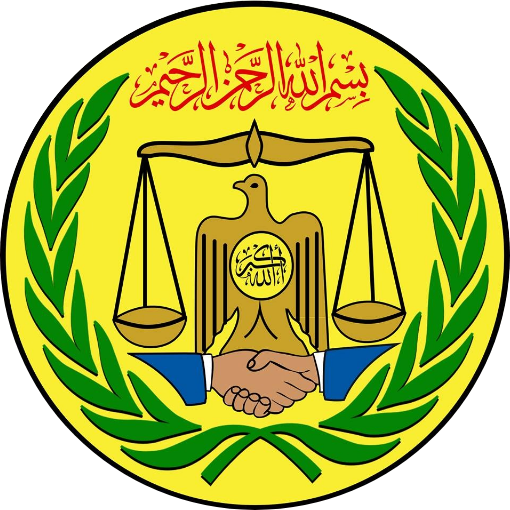
Early Childhood Education Policy and Institutional Framework
In this policy, ECE refers to any type of educational program that serves children in their preschool years, i.e.
before they enter primary school. It can include a range of activities designed to aid in the physical, cognitive,
social and emotional development of pre-schoolers, including, in the Somaliland context, their moral and spiritual
development.
The policy represents the first systematic thinking of developing early childhood education in the Somaliland context
by MoES and other stakeholders. The mission of developing this policy was informed by the need to:
• Improve access to high-quality early childhood education
• Improve the quality and relevance of the ECE programmes
• Improve the equity, equality and wider inclusion aspects of ECE programmes
• Improve the governance, accountability and institutional structure of the ECE delivery
• Improve the monitoring, evaluation and research of ECE programmes
• Improve the finance and partnership strategies of ECE programmes
The MOES’s vision is to provide quality ECE that will provide a wide range of developmental activities for all
children aged between four to five years prior to the beginning of their primary school experience so that they can
develop to their full potential. The vision informs the mission of the Ministry which is to ensure equitable access to
quality and relevant ECE services for holistic development of all children aged between four to five years. It is
expected this policy will set the direction and guidance for achieving the above vision and mission.
Somaliland TVET Policy
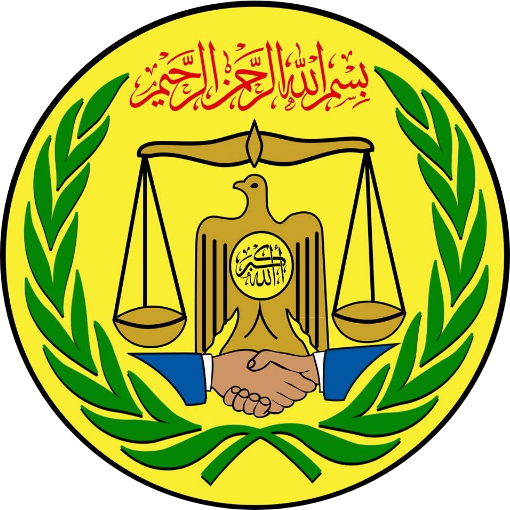
The strategic importance of TVET for economic and social development
Technical and vocational education and training (TVET) is central to the achievement of the United Nations 2030 Agenda for Sustainable Development, with its 17 Goals including no poverty, zero hunger, quality education, health, water, and energy. TVET developments in the next decade are expected to play a significant role in improving economic, social, and environmental outcomes, locally and globally. TVET supports people to develop the skills they need for employment, decent work, and for entrepreneurship. It promotes equitable, inclusive, and sustainable growth of industry and business. It increases youth employability, enhances social well-being, and promotes stability and peace by empowering people to work and create jobs for others. It supports transitions to green economies and sustainable development.
Economic development is also dependent on whether a country/society is able to successfully manage emerging changes such as climate change, disruptive technologies, management of information, public health crises, global connectivity, and demographic shifts. To deal with these issues we need young people to engage, to develop useful specialist and transferable skills, and to learn safe and sustainable practices for the modern workplaces of the next decade. A well-functioning, high-quality TVET system has the potential to influence work practices in the short and long term by emphasizing occupational and professional standards, developing skills and knowledge for sustainable work practices, and introducing new technologies.
Lack of skills in the workforce is a major constraint on economic activity in many parts of the world. It can lead also to severe social problems including poor nutrition, poor health, migration, drugs, crime, and terrorism.
It is not only youth and unemployed people who need TVET to become productive members of society. The world of work is evolving rapidly, and all adults need to keep on upgrading their skills throughout life, to keep up with the changing profile of the job market, and to remain in relevant employment.
SPECIAL NEEDS EDUCATION (SNE)
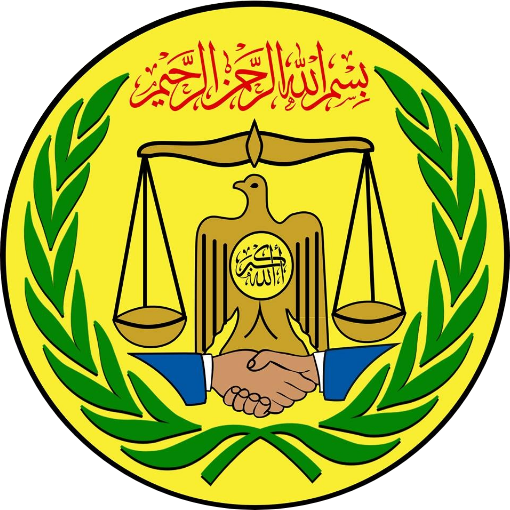
SPECIAL NEEDS EDUCATION (SNE)
Education is a basic human right for all and a major agent of change towards sustainable development in any country. It lays the foundations for diverse positive initiatives and helps create civilized and orderly citizens. Education also empowers individuals by opening up avenues that would expand personal choices, providing the basis for acquiring many other skills, granting control over one's environment, and becoming resourceful to one's community. Seen in this light, education is an indispensable means of unlocking and protecting human rights by providing the environment that is required to secure good health, liberty, security, economic well-being, and participation in social and political activities.
National Teacher Education Policy
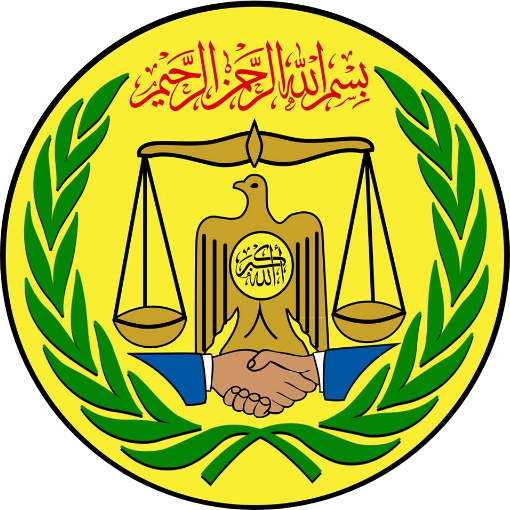
Qualified teachers are essential for proper and quality education. It is essential to recruit qualified teachers through a scientific and transparent employment process. In Somaliland, the Ministry of Education and Science is responsible for teacher education, particularly the Human Resource Department for recruitment and Somaliland National College of Education for training. The first teacher education policy framework was formulated in September 2006, and it has been made further development and improvement in 2013. This improvement was based on the philosophy and strategic objectives contained in the Somaliland National Education Policy (2013) and the SL Strategic Education Sector Development Plan (2012-2016).
In 2017, the Ministry of Education and Science has made a review of Somaliland National Education Policy and ESSP 2017-2021 has been developed. The current National Teacher Education Policy review is based on the SNEP 2017 and ESSP 2017 -2021.
The teacher education in Somaliland fall under two categories. Primary school Teacher education (pre-service and in-service training) and secondary teacher education (pre-service and in-service training) that is undertaken by MOE&S and SNCE.
National Education Curriculum Framework.
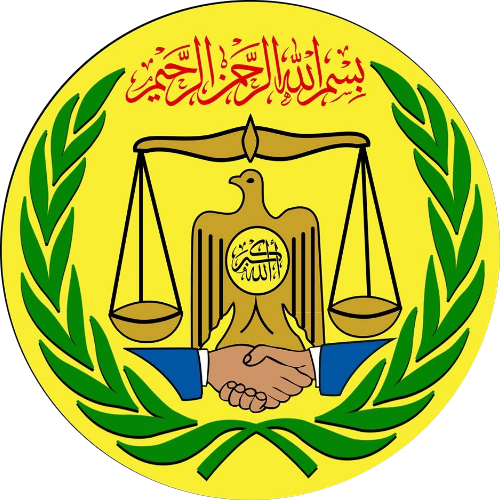
This is a national document outlining an education curriculum framework for Somaliland. It provides national education goals, a range of learning areas and outcomes, innovative teaching, learning, and assessment approaches. It further outlines the roles and responsibilities of various stakeholders in ensuring the efficient and effective delivery of the school curriculum. In brief, this document describes an overall framework for the curriculum for our schools and non-formal education programs. It addressed three critical questions: why adopt a new curriculum framework? Who benefits from this change? And how will this change be implemented?
